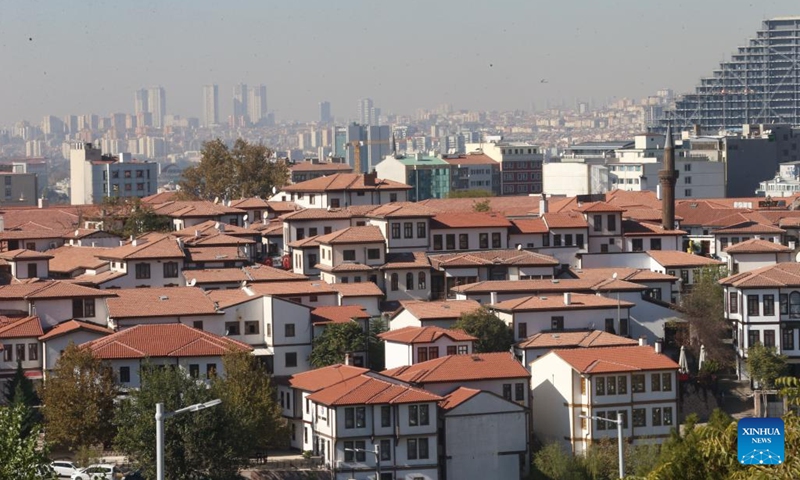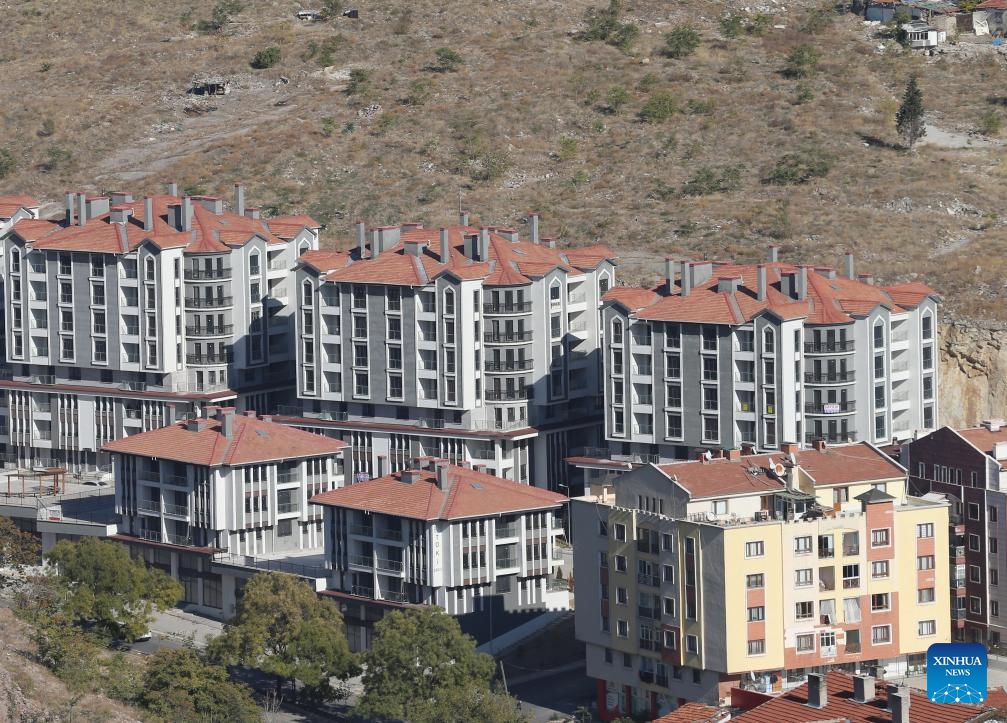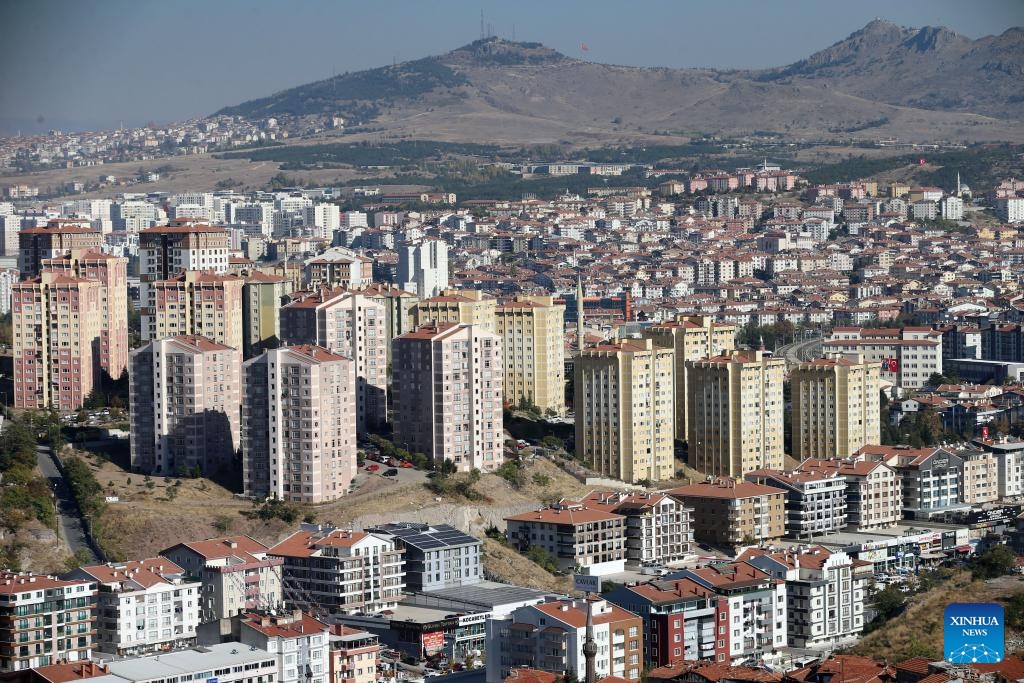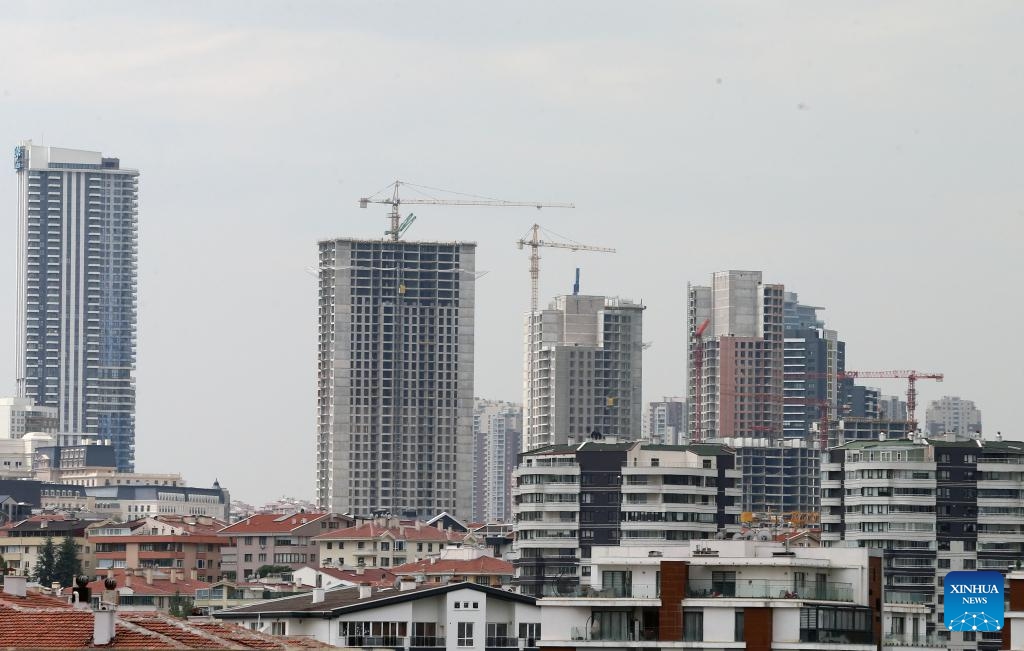
Photo taken on Oct. 28, 2024 shows residential buildings in Ankara, Türkiye. Falling prices and a rise in investment potential have sparked a resurgence in Türkiye's housing market amid an improvement in the country's economic indicators, industry insiders said. (Photo: Xinhua)

Photo taken on Oct. 28, 2024 shows residential buildings in Ankara, Türkiye. Falling prices and a rise in investment potential have sparked a resurgence in Türkiye's housing market amid an improvement in the country's economic indicators, industry insiders said. (Photo: Xinhua)

Photo taken on Oct. 28, 2024 shows residential buildings in Ankara, Türkiye. Falling prices and a rise in investment potential have sparked a resurgence in Türkiye's housing market amid an improvement in the country's economic indicators, industry insiders said. (Photo: Xinhua)

Photo taken on Oct. 28, 2024 shows residential buildings in Ankara, Türkiye. Falling prices and a rise in investment potential have sparked a resurgence in Türkiye's housing market amid an improvement in the country's economic indicators, industry insiders said. (Photo: Xinhua)
Falling prices and a rise in investment potential have sparked a resurgence in Türkiye's housing market amid an improvement in the country's economic indicators, industry insiders said.
In September, 141,000 residential properties were sold in Türkiye, registering a 37 percent increase year-on-year and the highest house sales since late 2022, according to data released by the Turkish Statistical Institute (TurkStat) on Oct. 17.
The uptick in sales is believed to be partially driven by a more affordable property market. "There is definitely an increasing interest in house purchases as prices have dropped to realistic levels," Can Ertam, an Ankara-based real estate agent, told Xinhua.
He said consumers are keener to search for affordable housing units as rents keep soaring after the removal of a rent cap by the government.
"Low-price houses are the most sought-after these days by clients looking to either escape the rent crisis or own houses for investment purposes," Ertam added.
The agent noted that Istanbul, in particular, remains a prime location for both residential and commercial real estate investments due to its cultural and economic importance.
Meanwhile, the real estate sector, particularly in Istanbul and resort areas such as Antalya along the Mediterranean, has attracted significant foreign investments.
In addition, the government's promotional policies, such as offering citizenship to foreign buyers, have further boosted this trend, bringing in much-needed foreign currency for the ailing economy.
The construction and real estate sectors constitute a crucial component of the Turkish economy, contributing around 8-10 percent to the gross domestic product.
The housing and construction industries also help support other sectors like manufacturing, retail, and services, and provide a significant number of jobs, employing nearly seven percent of the working-age population, according to data from TurkStat published in January.
Although house sales have gathered momentum, restricted access to credit continues to be an issue for ordinary citizens, Atilla Yesilada, an Istanbul-based economist, told Xinhua.
"Borrowing rates are considerably high due to the current monetary policy, and banks only offer a small percentage of a property's value," he said.
The analyst stressed that borrowing costs should be lowered accordingly for ordinary citizens to enter the housing market and to own a property.
To tame runaway inflation and financial woes, the Turkish government introduced a disinflation program coupled with interest rate hikes in the middle of last year.
From June 2023 to March this year, the central bank increased its benchmark interest rate from 8.5 percent to 50 percent to tighten monetary policy and has kept the rate unchanged since March to allow the tightening to have an impact.
According to official data released in early October, Türkiye's annual inflation rate slowed to 49.38 percent in September, marking the first time in three years that inflation has fallen below the key interest rate.
